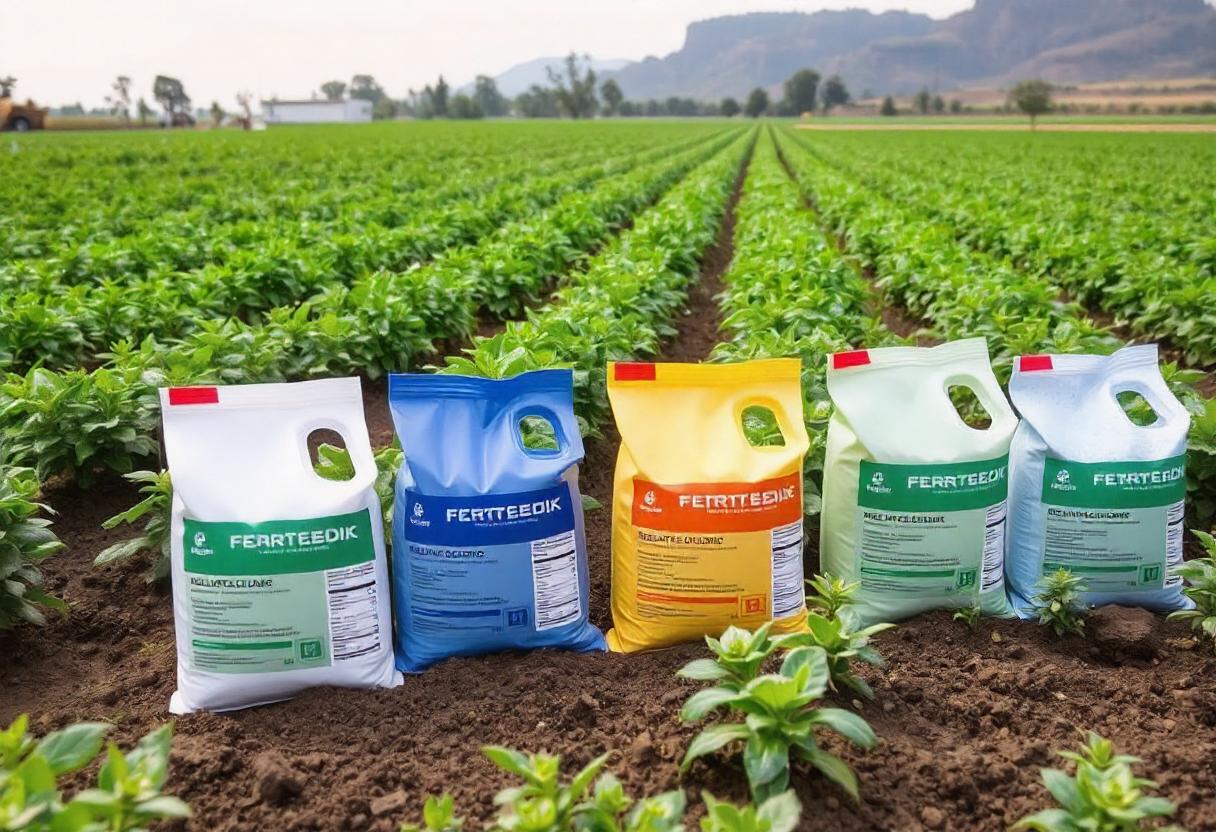
Agriculture fertilizers are vital for enhancing crop production and ensuring soil fertility. They provide essential nutrients that plants need to grow and produce high yields. Fertilizers play a crucial role in modern farming, supporting agricultural productivity and food security. This article explores the different types of fertilizers, their benefits, and the best practices for their use.
Types of Fertilizers
Fertilizers can be categorized based on their nutrient content, source, and method of application. The primary types include:
Synthetic Fertilizers
Synthetic fertilizers are manufactured through industrial processes and are designed to deliver specific nutrients to crops. They are highly concentrated and provide rapid nutrient availability.
- Nitrogen Fertilizers: These include urea, ammonium nitrate, and ammonium sulfate. Nitrogen is essential for plant growth as it promotes leaf and stem development.
- Phosphorus Fertilizers: Examples include superphosphate and monoammonium phosphate (MAP). Phosphorus is crucial for root development, energy transfer, and flowering.
- Potassium Fertilizers: Potash and potassium sulfate are common examples. Potassium helps with water regulation, disease resistance, and overall plant health.
Organic Fertilizers
Organic fertilizers are derived from natural sources and are often used in sustainable farming practices. They improve soil health and provide nutrients in a more gradual manner.
- Manure: Animal waste, such as from cows, chickens, and horses, is commonly used. It enriches soil with organic matter and essential nutrients.
- Compost: Decomposed organic matter from plant and animal sources. Compost enhances soil structure and fertility.
- Bone Meal and Blood Meal: These are animal by-products that provide phosphorus and nitrogen, respectively.
Biofertilizers
Biofertilizers utilize microorganisms to enhance soil fertility and promote plant growth. They include:
- Rhizobium: Nitrogen-fixing bacteria that form symbiotic relationships with legumes, converting atmospheric nitrogen into a form usable by plants.
- Mycorrhizae: Fungi that form partnerships with plant roots, improving nutrient and water uptake.
- Azotobacter: Free-living bacteria that fix atmospheric nitrogen and make it available to plants.
Benefits of Fertilizers
Fertilizers offer several advantages for crop production and soil management:
- Increased Crop Yields: By providing essential nutrients, fertilizers help increase the quantity and quality of crop production.
- Enhanced Soil Fertility: Fertilizers replenish soil nutrients that may be depleted through continuous farming.
- Improved Plant Health: Adequate nutrition from fertilizers helps plants resist pests and diseases and adapt to environmental stress.
Best Practices for Fertilizer Use
Effective and responsible use of fertilizers is crucial for maximizing their benefits while minimizing potential negative impacts.
Soil Testing
Conducting soil tests helps determine the specific nutrient needs of the soil. This information allows farmers to apply the right type and amount of fertilizer, avoiding overuse and ensuring optimal plant growth.
Proper Application
- Timing: Apply fertilizers at times when plants can best utilize the nutrients. This might involve pre-planting, during growth stages, or as a side-dressing.
- Method: Fertilizers can be applied through broadcasting, incorporation, or fertigation (applying through irrigation). Choose the method that suits the crop type and soil conditions.
Environmental Considerations
- Avoiding Runoff: Prevent fertilizer runoff into waterways, which can cause nutrient pollution and harm aquatic ecosystems.
- Precision Application: Use precision agriculture techniques to apply fertilizers more accurately and reduce waste.
Challenges and Innovations
Fertilizer use faces several challenges, including environmental impacts and resource limitations. However, ongoing innovations are addressing these issues:
- Slow-Release Fertilizers: These provide nutrients gradually, reducing the risk of nutrient leaching and improving efficiency.
- Enhanced Efficiency Products: Fertilizers with additives that enhance nutrient uptake and reduce losses.
- Integrated Nutrient Management: Combining organic and synthetic fertilizers to optimize nutrient use and improve soil health.
Conclusion
Agriculture fertilizers are essential tools for modern farming, offering significant benefits in terms of crop yields and soil fertility. By understanding the different types of fertilizers, their advantages, and best practices for their use, farmers can effectively manage soil health and support sustainable agricultural practices. Continued innovation and responsible use of fertilizers will be key to addressing future challenges and ensuring the long-term productivity of agricultural systems.